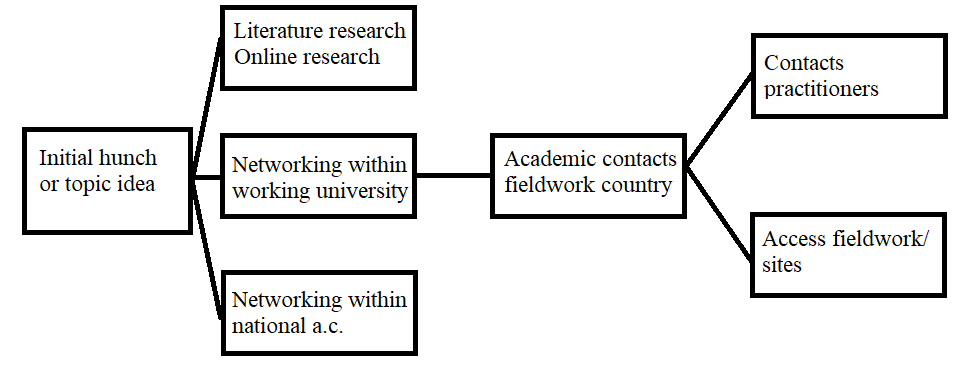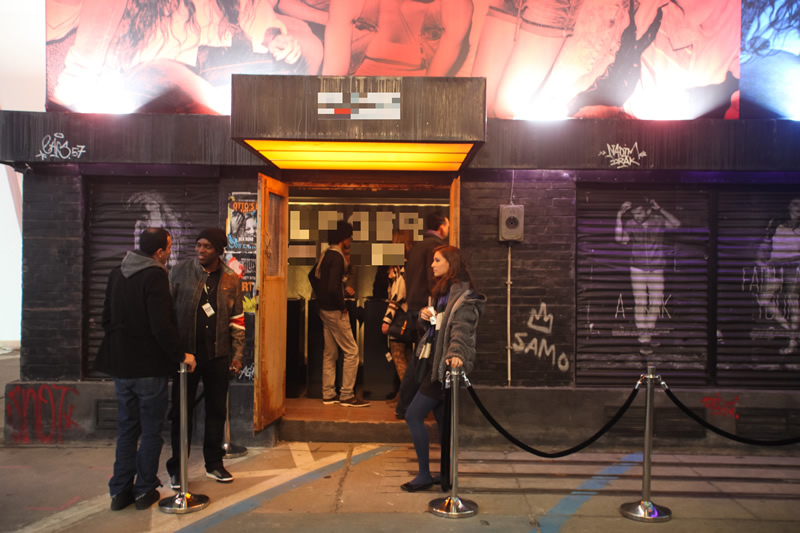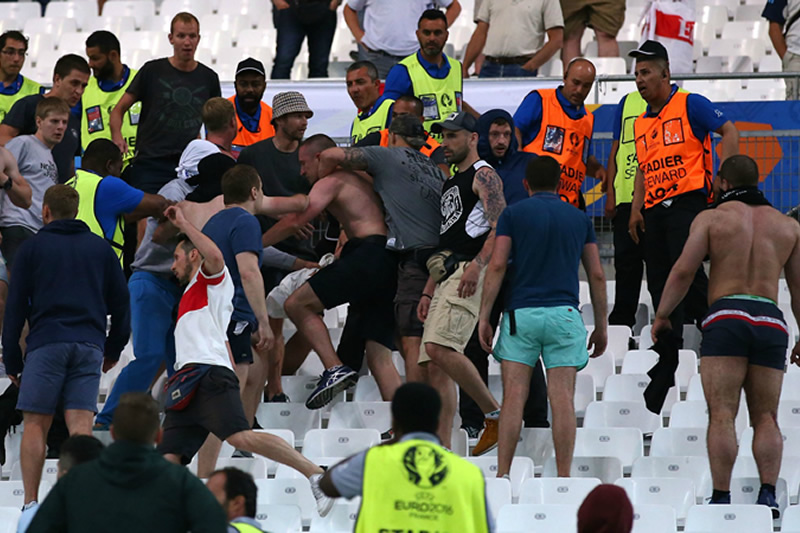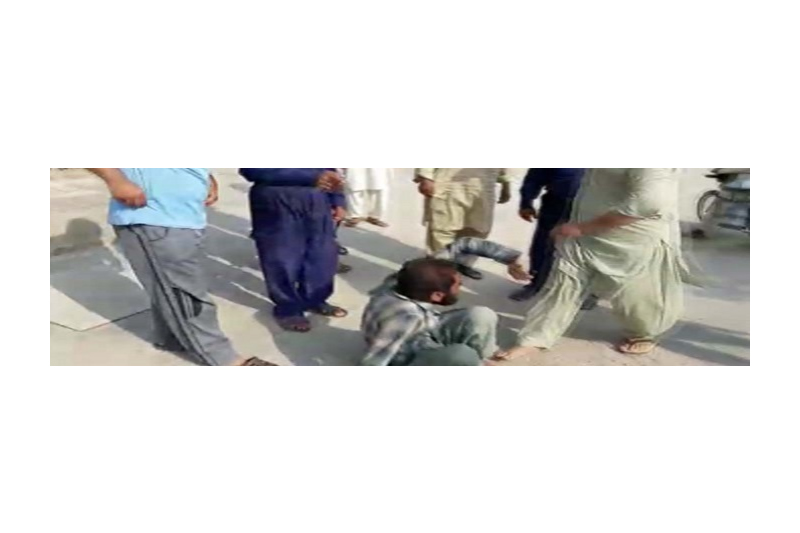Phie van Rompu
From a hunch to a hop on board
A Dutch PhD student's serendipitous journey of finding and preparing a research topic on policing in Cape Town
By no means am I providing any (in)definitive arguments or conclusions on the topic of (community) policing in South Africa, as this post is only based on preliminary orientation. This blog is an informative post on the kickstart of my quest for a new research topic while still working on my PhD project. It aims to highlight how topic formation and fieldwork come together due to both planning and coincidences; and how I went from a hunch to a potentially relevant research project.
It started back in August 2019 when I was reading the independent opinion magazine 'De Groene Amsterdammer' whilst enjoying the sunshine of one of Amsterdam's particularly hot but rare summer days. Turning the page, my eye fell on a piece by Dutch correspondent Fred de Vries on Cape Town's gang violence of which the final sentence caught my attention: "Bonteheuwel, [with] an average of two murders per week, experienced its first victimless month in July. That success is attributed to the Neighborhood Safety Team [NST], a combination of police and local residents, who patrol on foot". With a waterflood of questions running through my mind I hopped behind my laptop and started looking for more information: Was this number correct, and how did they measure that? What is the idea behind a NST? How do they operate and why did they contribute to the drop of local murder rates?
Post-fieldwork write-up struggles are rarely discussed in academia as well as the serendipitous journey of discovering a new topic for a new and related research project. Writing this blog captures some of the messy and fortune aspects of the (short yet intensive) journey I went through in preparation of and during my research visit in Cape Town. It also shows how those with temporary contracts, like PhD candidates, can formulate their ideas for a next project while working on their current one.
Moving forward regarding my research interests
My interest in different types of policing and security developed gradually in the last three years working on my PhD project on Dutch professionalized night life and event security. From a zoomed-in focus on a relatively small subniche of private policing I noticed my interest broadening its horizon. Due to my curiosity's hunger about finding the next step in my academic career I subconsciously started looking for the next 'puzzle' that would grab me.
Doing qualitative research from a micro-sociological point of view on how guards de-escalate rising antagonism, in combination with my previous experience of doing fieldwork in Brazil (in some of Rio de Janeiro's favelas), I already knew I was passionate about undertaking research in a different country with a similar research design. That particular day in August I realized all of this had come together: My next research experience would have to take place in South Africa. I had found my next set of questions I wanted to sink my teeth into.
Thankfully, the ERC funding for my current project allowed me to go abroad for several months, either doing (more) fieldwork in a different setting; partaking in the academic community of a university abroad; or experiencing a change of scenery that could provide an inspirational boost for the final writing stage. I decided to do all the above. In the following sections you can read how my planning and some coincidences have enabled me to work on a realistic research grant proposal.
Prepping on the topic
Whilst in bikini behind my laptop, realizing there had not been any journal papers written on NSTs, I now experienced even more enthusiasm. I had never been to South Africa, but that did not stop me now as well as it did not when I moved to Brazil for nine months to undertake research for my MA thesis. Although for Brazil I did not do much more than book my ticket, read academic literature and let the surprise effect do its magic, I now wanted to have a small network in place before starting my three month visit to South Africa.
The downside of this research topic was the lack of (academic) publications on NSTs, with there only being a press release by the government, a few blog posts and articles by news outlets that presented similar messages as what was presented in the de Vries article. The team of 100 newly trained NST law enforcement officers was supposedly making a positive impact since its deployment in June 2019. Consequently, I reached out via email to de Vries (whom I befriended and saw regularly while in Cape Town), some of these bloggers, and academics working in the Netherlands of which I knew they had done research in South Africa on subjects related to gang violence and security.
Networking prior to departure
Marie Rosenkrantz Lindegaard and Tessa Diphoorn turned out to be helpful in particular as they sketched some of the environments where I would probably find myself: On the one hand challenging (a foreign student at the university seeking to undertake research on some of South Africa's poor communities), and on the other hand warm and hospitable (e.g. Diphoorn having weekly 7am breakfasts with a security company owner). Both introduced me to some of my South African academic contacts that soon turned out to become valuable gatekeepers. Lindegaard also explained that dropping by the offices of prospective key informants instead of trying to set up things through telephone would work better and I therefore decided to announce through email my arrival and preference for a face-to-face meeting.
Setting up on Capetonian grounds
For me, key to writing a persuasive research proposal means having a preliminary ethnographic understanding of the research area. Thus, I initially wanted to understand more about the framework in which the NST in Bonteheuwel operates. Guy Lamb, who also made my visiting position at the Safety and Violence Initiative at UCT possible, provided me with a better understanding of the "fluid, fragmented and ambiguous (…) policing framework" (Marks, Shearing & Wood, 2009). I only now grasped the NST's public structure and cooperation. Shortly summarized, the NSTs aim is to combat community violence through a synergy across different spheres of government in collaboration with society organizations building a practice as a model for locally based integrated policing, especially for resource-poor(er) communities. Lamb clarified the relation between the three police forces at city, province and national level and explained that the NST came about through combining these forces and how this structure has changed since the 2018 pilot study in Delft. This got me thinking about how this amalgam of involved policing institutions (with different mandates) influences the micro-interactions between these officers (due to different police cultures) and how this related to interactions with local residents.
Lamb also mentioned that other than a few key players in the field, not much research had been conducted on NSTs and neighborhood watches – something that strikes me as fascinating yet disappointing. Further research is clearly required in this area especially considering that such initiatives can reduce police violence and improve relations between citizens and the police, especially in a context characterized by approximately 3500 reported cases of police brutality annually, the associated negative impact on the relationship between police and public causes a loss of public confidence in the police.
From here the snowballing proceeded rapidly. From one moment of searching for tall government buildings on hot summer days in the CBD of Cape Town and then the next moment rushing through traffic to one of Muizenberg's beachy coffee spots, my initial hunch started to become more of an actual doable research plan. Three weeks in during my Capetonian experience, I had already had a handful of meetings with knowledgeable persons who provided me with relevant information on the NST and access to 'the field'.
My puzzle
One week after having the first few meetings I found myself searching for the police commander in one of Cape Flat's communities for a ride-along during one of the Law Enforcement's evening patrols in order to get a 'feel' this type of police work and how these Law Enforcement Officers were collaborating with the SAPS. As part of a four-hour shift, I observed several house penetrations and numerous stops and searches. Based on the chats with different officers I started understanding how the NST would become integrated in the new Law Enforcement Advancement Plan (LEAP).
According to one of the architects behind the initial NST approach, courses and training are deemed extremely important in order to build a community-oriented policing culture. On paper it remains unclear to what extent the community policing inspired NST approach will be integrated in LEAP, but according to one of my contacts after "[beinghttps://www.da.org.za/government/where-we-govern/2020/01/law-enforcement-training-shifts-into-gear">500 learner law enforcement officers were appointed on February 1 starting in the field with their in-the-field-training after receiving a three-month training in traditional policing. I was hoping to observe some of the practical training, but then COVID-19 became a global pandemic and I was summoned by my University to return to the Netherlands.
My 'puzzle' has, starting with the 'NST hunch', now developed in some key questions I see occurring with this new police approach. In light of the lack of research I have now become very interested in understanding when and how this community aspect of policing will be pursued, how this will be executed, if and how potential psychological changes in the policing approach will occur, and how this will contribute to successful de-escalatory practices.
Considerations for proposal
From a hunch based on reading a small opinion piece I dipped my toe in a new experience. Serendipitously, I had come at the right moment to 'witness' the kick-off of this innovative project and my initial fear, about doing preliminary research one-and-a-half years prior to my possible return for the actual research, was taken away when one of my contacts mentioned it was too early yet for me to be allowed to sit in on workshops for supervisors of LEAP who will be working with crime hot spot maps (deriving from crime threat analysis through effecting sharing of different crime statistics and crime intelligence (such as CCTV (SSU) and ShotSpotter) gathered by CoCT enforcement).
I am keen on following the developments regarding LEAP and there is much to (re)consider for my grant proposal. I have learned from South African researchers and practitioners how important participatory action research has become (and thus I will consider this approach), I will also want to include qualitative video analysis of footage that LEAP is now generating/integrating and perhaps include footage I will shoot myself with a body cam while being part of a Law Enforcement patrol (as a commander already allowed, and even expected I already did this during my first ride-along), and I know I will want to use my preferred elicitation techniques (such as drawings) to encourage officers into talking about the tacit knowledge of their practices but also hopefully to be able to make use of the LEAP crime hot spot maps during interviews with officers and other interviewees.
Concluding remarks
I have included a simple overview in figure 1 which shows how from an initial hunch you can start by doing online/literature research and networking within your own research community.
They are likely to snowball you into the right direction and provide you with relevant contacts in the country of destination, who will then likely help you gain access in the field you are interested in by linking you to potential gatekeepers.
I consider feeling the field as an essential starting point for a new project. Moving away from our ivory tower and desktop conducted proposals, it provides researchers with (more) realistic ideas that will inform the proposal for a doable project. Especially considering research abroad as a foreigner, it helps to understand some of the cultural norms and values that will play a role in the interactions in academia and in the field.
Planning is key. In order to get insight in what is possible, in order to set some initial parameters for the future project, we can achieve more realistic grant proposals. And I think, especially as starting researchers, it might be helpful to show that you have certain leverage as you are already embedded in the field – that you already have the 'boots on the ground'.
All that is left for me now is to finish writing my dissertation for my PhD and to work on the grant proposal for this future project…









